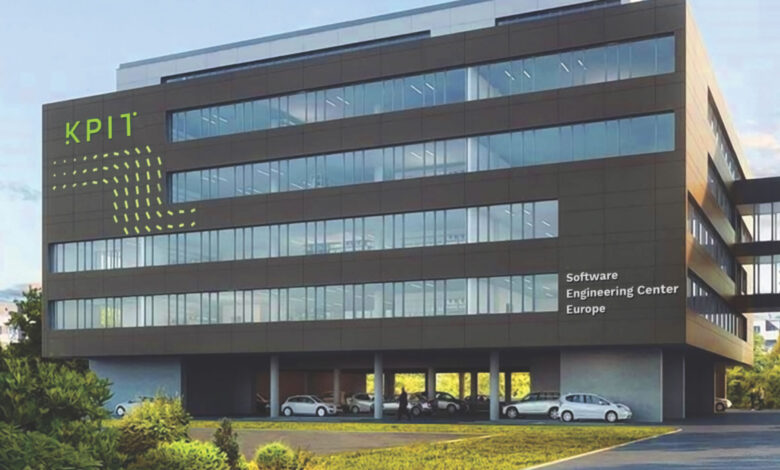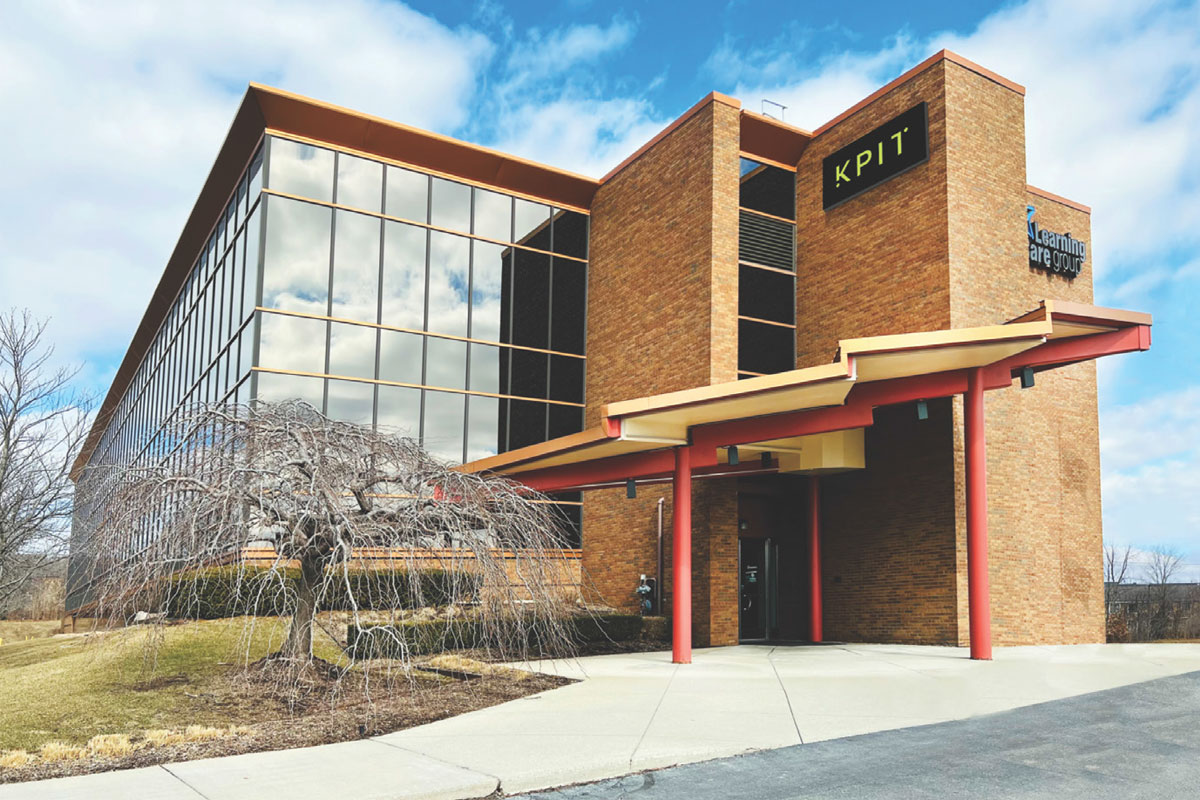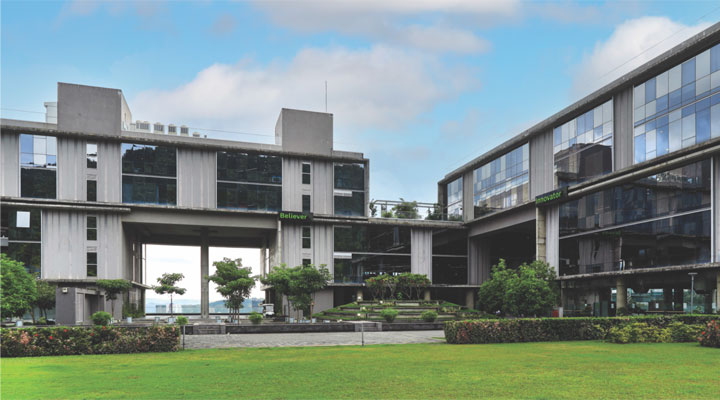KPIT TECHNOLOGIES, A GLOBAL TECHNOLOGY LEADER POWERING AUTOMOTIVE & MOBILITY ECOSYSTEM
A Global Technology Leader Powering Automotive And Mobility Ecosystem

KPIT is a global technology company with software solutions to help mobility leapfrog towards an autonomous, clean, smart, and connected future
 KPIT, with the vision of becoming the world’s number one independent software accelerator and integrator for the automotive and mobility industry in the last two decades, has witnessed significant growth in embedded software. Software within automobiles is a key differentiator for automakers, as it helps them acquire more customers and expand revenues over the lifetime of the vehicle. It has sharpened its focus on software for the mobility ecosystem, putting immense resources into technology for upcoming products that will take them toward an electric, autonomous, and connected future.
KPIT, with the vision of becoming the world’s number one independent software accelerator and integrator for the automotive and mobility industry in the last two decades, has witnessed significant growth in embedded software. Software within automobiles is a key differentiator for automakers, as it helps them acquire more customers and expand revenues over the lifetime of the vehicle. It has sharpened its focus on software for the mobility ecosystem, putting immense resources into technology for upcoming products that will take them toward an electric, autonomous, and connected future.
The global automotive industry is at the cusp of a technology revolution, with software solutions rapidly reprogramming the sector. Owing to several bespoke innovators in the segment, the automotive industry
has had multiple disruptive aspects in recent years—from Connected, Autonomous, Shared, and Electric (CASE) megatrends. Everything heavily relies on the cutting-edge software. Amidst this epoch of transformation, the industry stakeholders, including OEMs, suppliers, automotive software solutions providers, and new players, hope to bank on novel opportunities and capture critical control points in the software-driven value chain. The challenges in front of them are paramount.
To dissect the industry’s novel opportunities and challenges globally, we present the industry insights of one of the leading companies. KPIT is a global technology company with software solutions to help mobility leapfrog toward an autonomous, clean, smart, and connected future. With 10,000+ Automobelievers across the globe, specialising in embedded software, AI and Digital solutions, KPIT enables customers to accelerate the implementation of next-generation mobility technologies. We have development centres in Europe, the USA, Japan, China, Thailand, and India. It works with leaders in mobility and is present where the ecosystem is transforming. It will also leverage decades of experience working on developing, validating, and integrating applications for autonomous driving for next-generation technology roadmaps using a suite of virtual simulation and validation tools purpose-built for
independent driving use cases.
Under the leadership of Kishor Pal, Co-founder, CEO, and MD of KPIT, the company has grown over 50 times in revenues in the last 12+ years to have a worldwide footprint with a direct presence in Europe, the USA, Japan, China, Thailand, and India. Today, KPIT is moving swiftly forward with a vision to reimagine mobility for a cleaner, smarter, and safer world. He believes that today, the automotive industry is going through many changes globally, and automotive companies are also joining this revolution. Electrification
and Intelligent Vehicles are two predominant aspects of this revolution. As automotive companies are becoming more software-driven, semiconductors are another area where demand is flaring. It will be imperative to have some self-reliance in that area.
COVID-19 brought the whole world to a standstill, and the global manufacturing industry was no exception. Even now, the growth of the automotive industry is severely hindered, as vehicle sales are yet to pick up. But the herculean challenge is that even with the crippled revenue, the industry is going through a huge transformation curve. Organisations need to invest significantly in electrification and autonomous operations and remain competitive. In a nutshell, while the expenses have increased, the revenue went down. When it comes to established enterprises, to add to their woe, capitally well-funded startups that were naturally focusing on these areas are now offering a fair amount of competition.
Globally, the positive element for the industry at the moment is the demand for electric vehicles, especially in the markets like the US and Europe. Even the Indian market is exhibiting the demand to a great extent. India, the fourth-largest automotive market in the world, is recovering faster than the predictions. There is optimism all around. Going forward, the acceleration of the adoption of technology will be crucial.
His perception of the skill gap prevailing in the industry says over the next 7-8 years we will witness significant changes and innovations in the software segment. But the core competency of many automotive companies revolves around their manufacturing prowess, branding, and of course, some of
the critical technologies. Hence, the skill gap is evident with the industry becoming more software-driven. They have enough workforce, but they need a different outcome now. They need more ‘software people.’
The automobile software being highly domain-specific intensifies this predicament. The scenario is entirely different from other segments driven by software.
Established by professionals who are genuinely passionate about the automotive industry and embedded systems, KPIT is one of the pioneers of the automotive software industry and has been here for a long time. It has built a diverse workforce. Being a thought- leading organisation globally calls for a culturally diverse organisation. OTA is an exciting technology that they work on, as it will play a significant role in software updates for automobiles to work on such cutting-edge technologies.
The company works on cars that would be launched in 2023-24 or even 2025. The current semiconductor shortage has hit production vehicles. KPIT wants to match the performance of its larger peers. And the midsize information technology firm’s confidence stems from its order pipeline. KPIT is completely focused on the mobility sector, providing automotive, embedded software engineering services. The world of “automotive” is changing. High-end cars like a Lexus or BMW have 130 computers on them. A low-end car will have 50-60 computers. More than 10,000 engineers work at KPIT in the CASE area, i.e. on the topics of connectivity, autonomy, shared mobility and electrification. The automotive industry is in urgent need of deep software competence – both from scale and expertise perspective – which is exactly KPIT’s value proposition.
KPIT has written billions of lines of code on 100’s of vehicle programs and delivered software that is already in a large number of vehicle models on the road. It is one of the largest “software-focused” accelerators and integrators both in terms of size and know-how of the latest technology area.

Germany and Europe are of key importance to KPIT. They are represented well with 800+ employees in Europe, most of them in Germany. The close interaction with some of the leading OEMs and their suppliers in cutting-edge technologies is a truly global competence centre with engineers from 25 nationalities in their competency centre in Germany bringing expertise in the areas of Autonomous Driving, Powertrain Electrification, AUTOSAR and Diagnostics.
KPIT is intensively involved in the platform and technology development of powertrain electrification, digital cockpit, and automated driving. They are making very important contributions to our client’s software roadmap. Depending on the engagement needs of clients, they determine how they harness the centre global workforce bringing scale, expertise, and more which varies by technology area. 35%
of KPIT’s workforce currently works outside of India. But in a few cases like electric powertrain, they have more experts in Germany than other competence centres.
They invest mainly in the middleware area, which brings most of the components onto the market. They
quickly integrate the essential software and middleware and then build relevant features that the OEM does not necessarily have to build themselves. This is in line with their vision of becoming the world’s number one independent software accelerator and integrator for the automotive and mobility industry within the next three to five years, with a focus on talent, training and competency building. However, they are confident that the nature of software, strong software expertise, and the need for an independent software integration partner will not change. They are monitoring these trends as they emerge clearly, and will be agile to adapt to ensure the success that caters to the needs of their clients.





